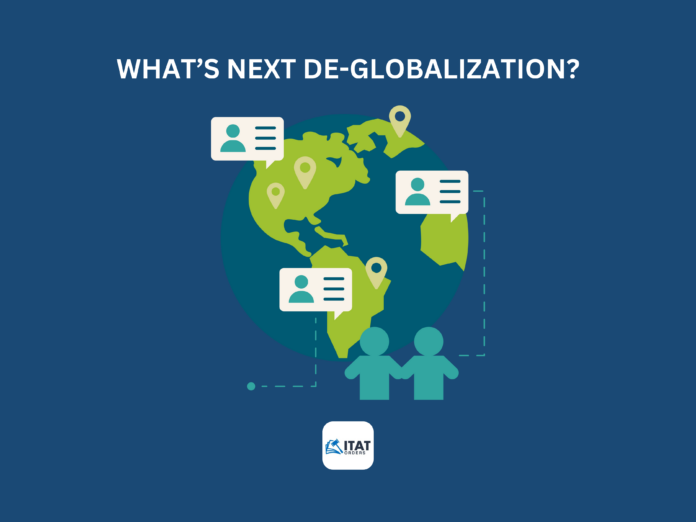Deglobalization is the process of diminishing interdependence and integration between certain units around the world, typically nation-states. It is widely used to describe the periods of history when economic trade and investment between countries decline. It stands in contrast to globalization, in which units become increasingly integrated over time, and generally spans the time between periods of globalization. While globalization and deglobalization are antithesis, they are no mirror images.
As the Coronavirus or COVID-19 has made the superpower nations like The United States, China, and many others bend their knees, nearly 187 territories have confirmed the presence of the virus, all countries have felt the need to be self-sufficient. The whole world is aware of the fact that China is the manufacturing hub for various countries, and many multinationals in a number of fields like automobile, textile, pharmaceuticals, etc. According to data published by the United Nations Statistics Division, China accounted for 28% of global manufacturing output in 2018. With total value added by the Chinese manufacturing sector amounting to almost $4 trillion in 2018, the manufacturing sector accounted for nearly 30% of the country’s total economic output.
Post the COVID-19 pandemic the whole global supply chain is interrupted since China was where the virus originated in its Wuhan district in December 2019. According to the latest reading published by the National Bureau of Statistics on Saturday, the Manufacturing Purchasing Managers Index (PMI), a measure of factory activity across the country, plummeted to a record low of 35.7% in Feb 2020, indicating a deep contraction. This break in the supply chain is very catastrophic since most of the major economy depends on such demand and supply, making the whole global economy suffer.
This COVID-19 pandemic has been one of the biggest eye-openers for the European Union as they were mainly dependent on China and India for their medical supplies who have slashed their exports since the pandemic. The countries of the European Union imported drugs and medicines worth nearly $150 billion in 2019. Reasons like unavailability of medical supply for the nation are compelling enough for a country to promote de-globalization to some extent or at least become self-sufficient in necessities so that in situations like these they don’t have to be dependent on other nations. We have statements from Government officials Bruno Le Maire, the French Finance Minister, who made the following statement “we should reduce our dependence on great powers such as China.”
Reports are saying many companies have realized the risks of this over-interdependence and intend to curb it. A recent Bank of America report states that 80% of the multinationals investigated plan to repatriate part of their production, known as re-shoring, a trend that COVID-19 could turn into a tidal wave. In a survey by the American Chamber of Commerce in Singapore, 28% of those polled said they are setting up, or using, alternative supply chains to reduce their dependence on China.
When this pandemic finally ends, we don’t know the exact stage in which globalization will resume but it’ll be in a guise that is less intense and different from the one we have known up to now.


